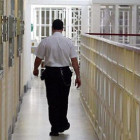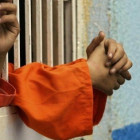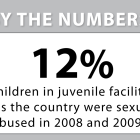
Proposed Budget Cuts Loom for Juvenile Justice Programs
|
Youth advocates are ringing the alarm bells at Congress’s proposed levels of funding for state programs that would prevent young people from being locked up for skipping school, keep young offenders from being held in adult prisons and reduce the disproportionate numbers of minority youth in jail. Since 2002, the funds available for states to implement Title II of the federal Juvenile Justice and Delinquency Prevention Act have been slashed by more than half from $88.8 million, according to the Washington, D.C.-based Coalition for Juvenile Justice, which brings together citizens and public officials who work on juvenile justice issues in every state. Current funding levels for Title II -- whose four core requirements aim to protect young people from being unfairly confined in prison -- are at $40 million, according to figures released by the Coalition for Juvenile Justice in April. The White House requested $70 million for the 2013 budgetary year, an amount unlikely to pass Congress. If federal funds shrink further, states will have little incentive to meet federal guidelines for keeping juveniles out of the adult prison system, said Liz Ryan, president of the D.C.-based advocacy organization Campaign for Youth Justice.






